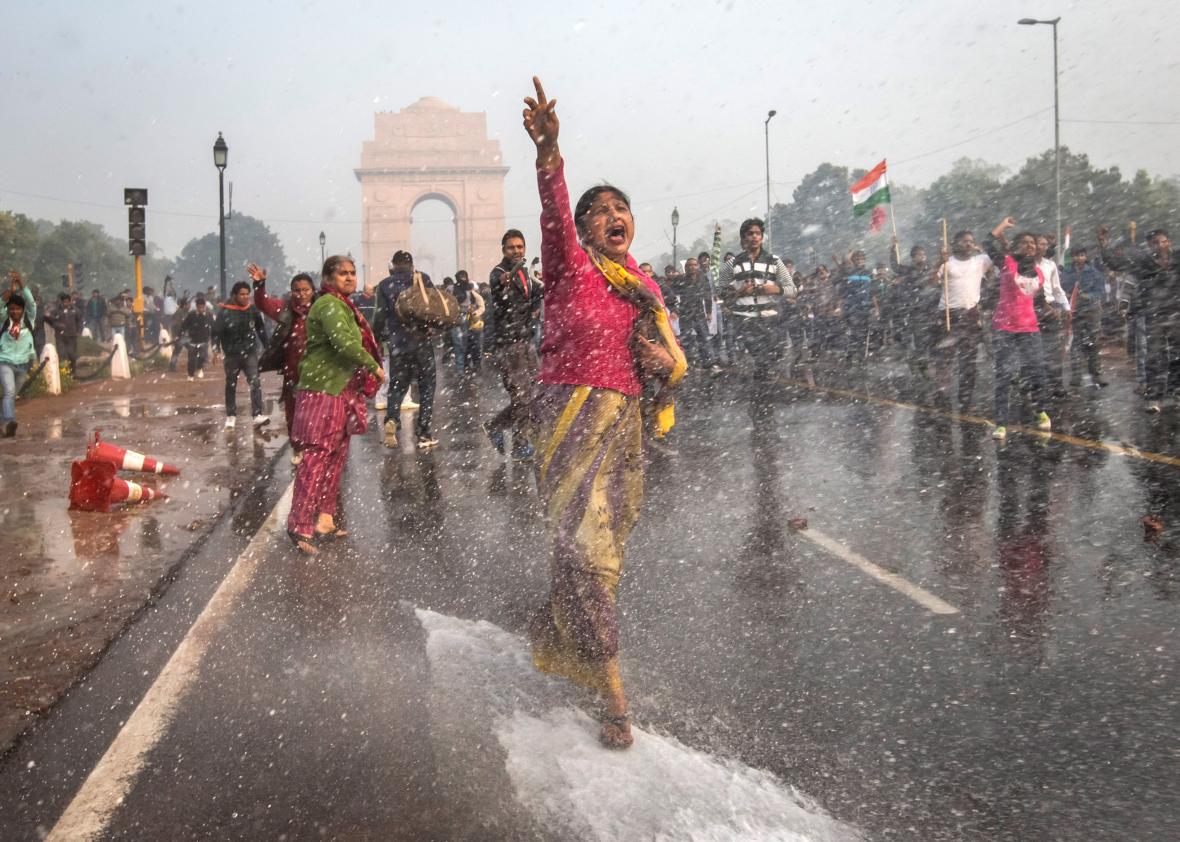One of the rapists convicted for the fatal New Delhi attack on 23-year-old Jyoti Singh was released on Sunday after just three years in prison. The youngest of the six gang-rape perpetrators, he was just under 18 years old on the night of the assault, which ensured his anonymity in the press and a lighter sentence than his co-conspirators. (One died in prison, and the other five were sentenced to death.) Three years is the maximum sentence for a juvenile offender in India.
The perpetrator will receive a sewing machine and 10,000 rupees (about $150) to start a new career as a tailor. He’ll be monitored by the Delhi Police’s Juvenile Justice Board and an NGO until a further rehabilitation plan is in place.
The brutal attack took place on Dec. 16, 2012, while Singh was riding on a private bus. The driver and five other men on the bus beat Singh’s male friend and gang-raped Singh; she died in a hospital 13 days later. The crime incited mass protests in India and around the world, where people discussed misogyny in Indian culture and demanded swifter, harsher punishments for perpetrators of sexual assault. Chronicled in the BBC documentary India’s Daughter, the protests led to new legislation around sex offenses and an increase in India’s rape reporting rate.
New Delhi Television reports that hundreds of protesters were detained by police as they congregated at a monument in New Delhi to protest the rapist’s release. Asha Singh, Jyoti’s mother, made a statement on Friday, declaring that she had failed to prevent others from meeting her daughter’s fate. From CNN:
“Crime has won. We have lost,” Singh said. “Our efforts for three years have failed.” “If they understood my daughter’s pain, if they understood my pain,” she continued, “the culprit would not be free. He deserves the same punishment as the four who’ve been given the death penalty. It should set a historic example in society that if you treat women and girls this way, no one will be spared.”
